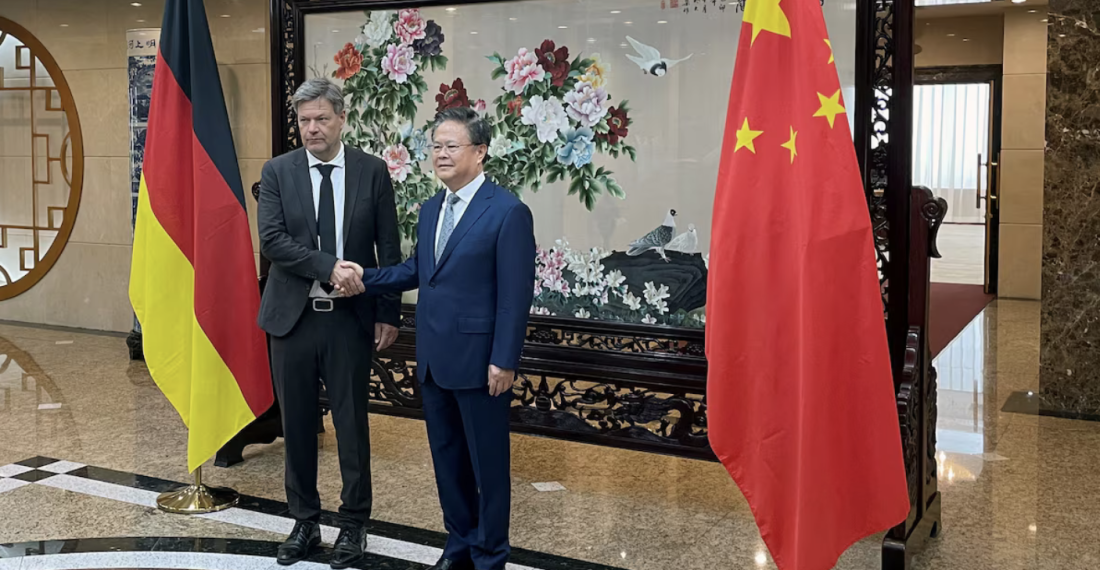Proposed European Union tariffs on Chinese goods are not a "punishment", German Federal Minister for Economic Affairs and Climate Action Robert Habeck assured Chinese officials in Beijing on Saturday (22 June). The visit is the first by a senior European official since Brussels proposed significant tariffs on imports of Chinese-made electric vehicles (EVs) in response to what the EU sees as excessive subsidies. Ahead of Habeck's arrival, China warned that rising tensions over EVs could spark a trade war. "It is important to understand that these are not punitive tariffs," Habeck told the opening session of a dialogue on climate and transformation. He stressed that unlike the US, Brazil and Turkey, which have used punitive tariffs, the EU is taking a different approach.
The European Commission spent nine months investigating whether Chinese companies had received unfair subsidies. Habeck explained that any countervailing duties resulting from the EU's review are not punitive but are intended to offset the advantages that Beijing has granted to Chinese companies. "Achieving common, equal standards for market access is essential," he added. During a meeting with Zheng Shanjie, chairman of China's National Development and Reform Commission, Habeck explained that the proposed EU tariffs aimed to create a level playing field. Zheng countered, "We will do everything to protect Chinese companies," arguing that the tariffs would hurt both sides. He urged Germany to take the lead within the EU and "do the right thing". Zheng rejected accusations of unfair subsidies, arguing that the growth of China's new energy industry was due to competitive advantages in technology, market and industry chains. This growth was the result of competition, not subsidies, Zheng said. Following his meeting with Zheng, Habeck spoke with Chinese Commerce Minister Wang Wentao, who was due to discuss the tariffs with EU Commissioner Valdis Dombrovskis via video conference on Saturday evening.
Although trade tensions were a key issue, the main aim of the meeting was to strengthen cooperation on the green transition between the two industrialised nations. This was the first plenary meeting of the Climate and Transformation Dialogue since Germany and China signed a memorandum of understanding in June last year to cooperate on climate change and the green transition. China will add nearly 350 gigawatts (GW) of new renewable capacity in 2023, more than half the global total. At this rate, China is likely to exceed its 2030 target this year, according to a June report by the International Energy Agency (IEA). While Habeck praised China's expansion of renewable energy, he stressed the importance of looking at overall CO2 emissions. Coal will still account for almost 60% of China's electricity supply 2023. "China has a coal-based energy mix," Zheng acknowledged, with China, India and Indonesia accounting for nearly 75% of global coal consumption, prioritising energy security, availability and cost over carbon emissions. Zheng noted that China is building coal-fired power plants as a security measure. "I still believe that the massive expansion of coal power can be approached differently if you consider the role of renewables in the system," Habeck replied.







